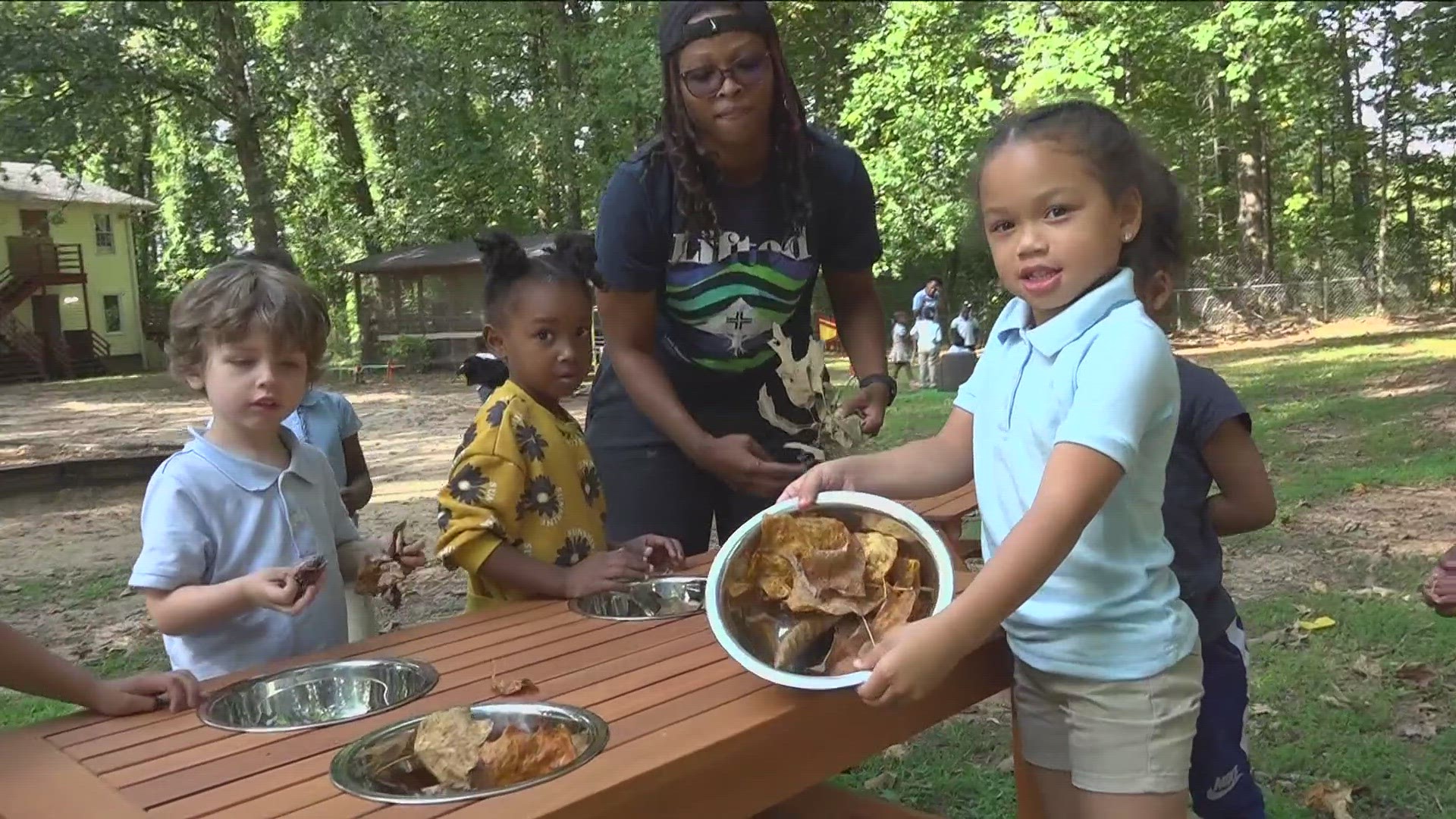ATLANTA — The clock is ticking as critical federal funding that helped child care centers across the country stay afloat during the pandemic is set to expire this Saturday.
In Georgia, centers have until June of next year to use their last bit of funding, so immediate effects may not be seen quite yet.
However, experts say families should prepare now as the cost of quality child care could increase as the funding runs out.
Felicia Conn-Payton, who runs Little Scholars Academy in College Park, said the loss of funding is concerning for both families and staff.
She said she often used that extra money to compensate her staff, enrich the program, and even offer scholarships to families.
"I wish somebody could just come in and stay in the center for one day and see how hard my staff works," Conn-Payton told 11Alive. "Just to provide that quality is more than just coming in and babysitting...it's teaching them, showing them love, and nurturing."
Ellyn Cochran with Quality Care for Children said that as the funding phases out, centers must now fund a way to sustain such investments.
"A lot of our providers have been using those dollars to make up for the fact that child care was struggling even before the pandemic," she explained.
Her organization is working to support Georgia providers, as a new survey by the group shows more struggle could be ahead. Specifically, 30% of centers say they may have to serve fewer children once federal support ends. More than 40% may have to cut teacher salaries and more than 80% report they may need to increase tuition.
"What could possibly happen is that you're going to see that not just impact parents, but impact our workforce throughout Georgia," she said, adding that families may have to "make different choices about their child care."
For center directors like Conn-Payton, the future is a balancing act to both support teachers with a living wage, while also offering quality care the community can afford. She said many families in the area would not be able to afford an increase in rates.
"Families are struggling right now, and they need help with childcare," she added.
In the political sphere, Democrats recently proposed the "Child Care Stabilization Act," a motion to extend funding with $16 billion in mandatory funding each year for the next five years. The legislation has not moved forward to date.
While the Georgia Department of Early Care and Learning (DECAL) does not have any estimates on how many child care centers could face closures, the state will be watching the situation, as indicated by Commissioner Amy Jacobs on a recent podcast.
The commissioner expressed her hope that centers are prepared as funding phases out, but the state is also offering free online business training to help providers with budget and financial skills.
“Over the past two years, DECAL has distributed $1.6 billion in federal financial supports to help child care providers mitigate the negative business impacts of the COVID-19 pandemic,” said DECAL Commissioner Amy M. Jacobs. “We created the Thriving Child Care Business Academy to be an additional industry support that helps providers acquire the knowledge, skills, and tools to become financially self-sustaining as those federal funding programs end.”
Quality Care for Children also offers resources including business support for providers and referrals for families seeking childcare.
"We are out there providing support to those providers," Cochran shared. "We are providing business coaching and making sure that their budgets are set up to be sustainable."
But more advocacy, she added, is needed.
"Right now is the time for us all to think about what we can do to help get more funding for child care," Cochran continued. "Child care cannot be sustained on the backs of parents. It must be part of what we invest in our nation's future."

